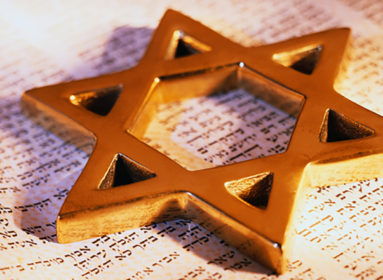By Shlomo Riskin
“This is what the Lord Almighty says: ‘The fasts of the fourth, fifth, seventh and tenth months will become joyful and glad occasions and happy festivals for Judah. Therefore, love truth and peace.’” (Zechariah 8: 19)
This week, I would like to explore a number of difficult issues concerning Tisha B’Av.
Firstly, the prophet Zechariah, cited above, optimistically declares that our fast days will one day become “joyful and glad occasions and happy festivals;” he therefore cautions us to “love truth and peace.”
We give credence and added strength to this prophecy by changing and lightening the foreboding character of Tisha B’Av by rising from our shivah stools (we must sit on the ground on Tisha B’Av) at mid-day. Likewise, adult males put on their tefilin for the post mid-day afternoon prayer – despite the fact that tefilin is called an “adornment” (pe’er) by the prophet Ezekiel. How can we change the character of a day and date of historical destruction, doom and gloom? In every other instance of a festival, the manner in which we celebrate the Kedushat HaYom (sanctity of the day) is determined by the miracles of God performed on that day. What miracle occurred on Tisha B’Av which enables it to become a festival in the future?
Even more paradoxically, it was specifically in the late afternoon of Tisha B’Av, the 9th day of Av that the actual burning of the Holy Temple commenced continuing into the next day, the tenth of Av (B.T. Ta’anit 21a). How can we alleviate the heavy atmosphere of our observance of the day precisely at the time when the destructive flames were beginning to envelop the Temple?
Finally, our Biblical reading for Tisha B’Av is taken from the Biblical portion of Va’etchanan, which will be read next week on the Sabbath known as the Sabbath of Comfort (Shabbat Nahamu). Indeed, although the passage opens with a brief description of the corruption of the Israelites and the eventual destruction which will occur after they enter the Promised Land (Deut 4:25-28), it then speaks of the miracle of Jewish survival and the ultimate beginning of Israel as God’s elected nation (ibid 29-40). Would not a reading from either of the two Biblical portions of Chastisements (Tochechot – Leviticus 26 or Deuteronomy 28) been more fitting for Tisha B’Av, the day of utter calamity and loss of national sovereignty?!
My revered teacher Rav Joseph B. Soloveitchik answers these questions – as well as an edifying insight into the significance of Tisha B’Av – in a commentary on one of the fast day dirges (kinot) – “How the Rose of Sharon sat alone”, written by Rabbi Elazar HaKalir. On the words, “The enemy stretched out his hand against the Temple, for we deserved extinction no less than the generation of the flood”. The Rav explained that while the suffering on Tisha B’Av was grievous and horrific, the day also contained an important element of God’s hesed (loving kindness): The Almighty chose to express His wrath against the corruption and insensitivity of the nation Israel by destroying the inanimate stones of the Holy Temple; God razed the Temple to the ground, but He allowed His nation Israel to live.
Israel “deserved the punishment of extinction no less than the generation of the flood”; but God chose to destroy His earthly throne, the Holy Temple, as substitute or collateral for Israel. In this manner, God demonstrates the eternality of His covenant with Israel; Israel may be punished but we will never be destroyed. Israel remains God’s covenantal nation, Israel will ultimately repent and Israel will ultimately be redeemed and will redeem the world (Kinot in the Tradition of the Rav, Lookstein Edition, OU –Koren Press pp. 282-3).
This is the force of the Biblical reading from Va’ethanan on Tisha B’Av. After the text states that because of Israel’s perverseness and idolatry she “will be destroyed, yes destroyed” (Deut 4:25), the very next verse lightens the punishment to exile and dispersion, promises that Israel will seek out God and repentance and declares that our God of compassion will never forsake or destroy us, He will never forget the covenant He swore to our fathers. (ibid 4:29-32)
It is this Divine guarantee which emerges from Tisha B’Av that enables the Ninth Day of Av to become a festival (mo’ed) once Israel learns to appreciate the lesson of the day and becomes worthy of the fulfillment of the Covenant. And this is why it is precisely when the flames were devouring and destroying the physical stones of the Temple, but not wiping out the Jewish people, that Jewish law alleviates the somber and burdensome atmosphere of the day by allowing us to rise from sitting on the ground and to adorn ourselves with the Tefilin.
Rabbi Shlomo Riskin is chancellor of Ohr Torah Stone and chief rabbi of Efrat, Israel.







 Southern New England Jewish Ledger
Southern New England Jewish Ledger














